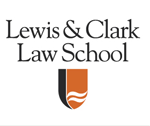Animal Law Review
First Page
1
Abstract
Milk is young mammals’ primary food. Yet, lactating animals raised for their milk, such as cows and goats, are subject to extreme forms of violence and control preventing them from breastfeeding their own young. Numerous human parents also lack the legal, economic, social, and emotional support they need to nurse their children. At one level, the situation of humans and that of farmed animals is incommensurable in that the latter’s reproductive and lactating capacity is typically exploited and rewarded by death when unprofitable. At another level, lactating animals of all species are in a related social status. Lactating parents, typically gendered as female, produce a highly valuable resource in a position of subordination. Meanwhile, many infants are neither breastfed nor fed their species’ milk. While breastfeeding law and policy is usually presented as a human public health problem, this Article argues that it is also an interspecies food and environmental justice problem. Both humans and animals are under-protected or unprotected by the law when it comes to lactation. This Article proposes the idea of an interspecies right to breastfeed, that is, a right the central meaning of which would be similar across species, even though its full implementation might require different accommodations, depending on each species. At its core, the right should be understood as relational in that it protects the breastfeeding relation, rather than the breastfeeding parent/caregiver or the breastfed child each taken in isolation.
Recommended Citation
Mathilde Cohen,
Toward an Interspecies Right to Breastfeed,
Animal L. Rev.
1
(2020).
Available at:
https://lawcommons.lclark.edu/alr/vol26/iss1/2

